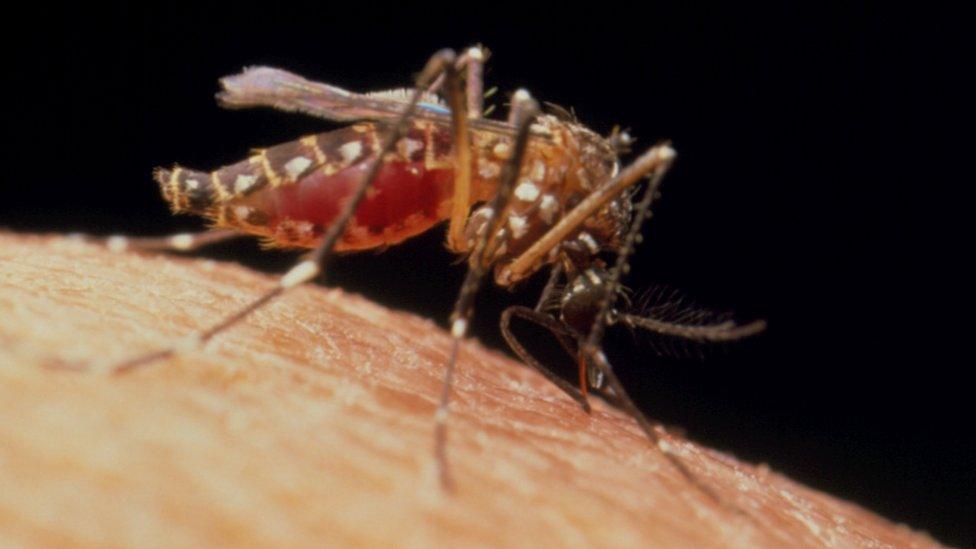Brazilian city of Recife sees spike in microcephaly cases
- Published
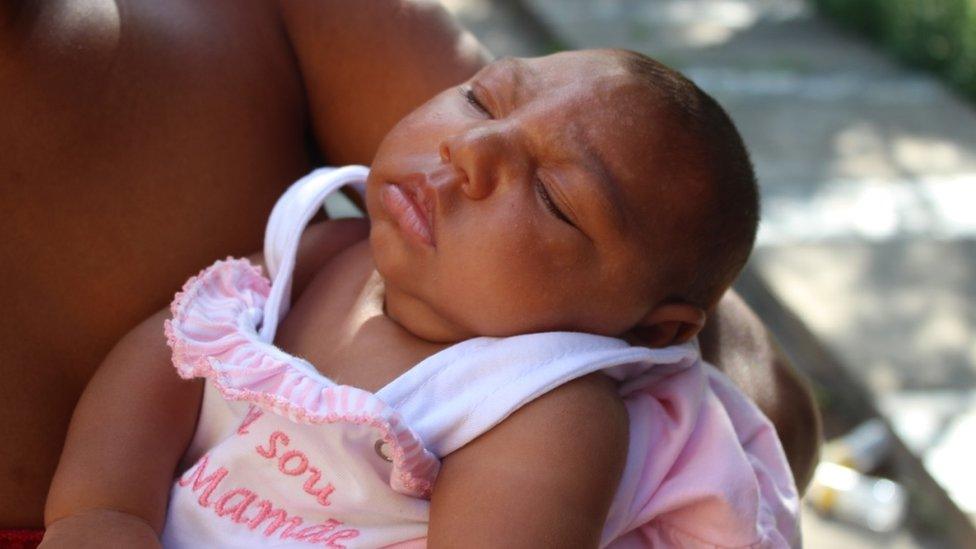
Health officials battling the Zika virus in Brazil say as many as 100,000 people could have been infected in one city alone.
The virus, which has no symptoms 80% of the time, is blamed for causing stunted brain development in babies.
About 3,500 cases of microcephaly have been identified in Brazil so far.
And medical staff in Recife, a state capital in north-east Brazil, say they are struggling to cope with at least 240 cases of microcephaly in children.
The city's Health Secretary, Jailson Correia, a specialist in tropical diseases, told the BBC he and others needed "to fight very hard".
'Global issue'
"This is a major public health challenge, probably the most serious we have had to face in recent Brazilian history - and already it's become a globalised issue," he said.
He was speaking in a situation room, where a large map of Recife shows where mosquitoes are most prevalent - and many areas are peppered with small pins to mark microcephaly cases.
The connection between Zika and microcephaly has not yet been definitely established - but there is growing evidence, with traces of the virus having been found in affected babies, their mothers and their umbilical cords.

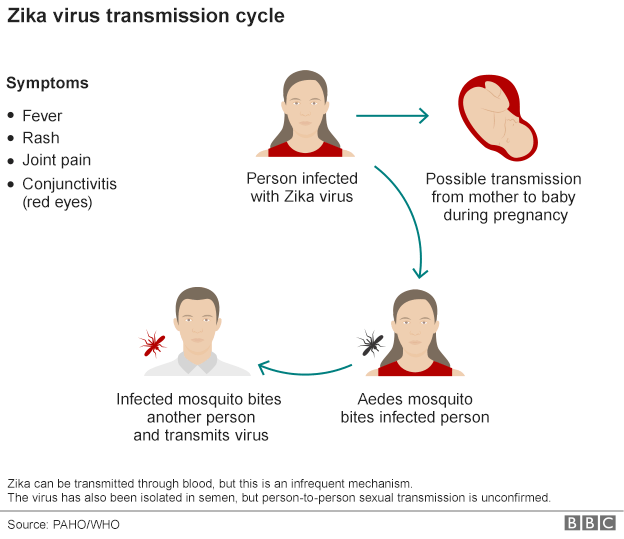
Mr Correia said a spike in infections by another mosquito-borne disease, dengue fever, in the first part of last year may in fact have included cases of Zika, which would explain the spike in microcephaly cases later in the year, with a peak last November.
"We may be talking about Recife having 50,000 to 100,000 people exposed to Zika in the first semester of 2015," he said, "and we are now seeing a secondary wave of cases with microcephaly."
At the Oswaldo Cruz hospital, one of Recife's largest, mothers waited patiently in the tropical heat for their babies to be examined.
Many had travelled for hours.

Recife has seen an explosion in cases of microcephaly because it is an urban sprawl in a low-lying coastal area that harbours mosquito larvae
One young woman, Erone Maria Le Lima, had brought her two-month-old daughter, Caroline Vitoria, whose head was seen as being smaller than normal just before she was born.
"I was caught by surprise," she told me, "but we are going to do everything to make sure it's going to be OK, to make her life better."
The doctor in charge of the department, Maria Angela Rocha, said staff had been overwhelmed by a rise from an average of five cases of microcephaly a year over the past six years to about 300 in the past six months.
"The mothers are stressed, and the professionals too have a lot of stress," she said.
"There is a lot of insecurity for the families."
Humid climate
Recife is an urban sprawl in a low-lying coastal area with a warm, humid and showery climate creating puddles and other bodies of water that can harbour mosquito larvae.
At City Hall, Mr Correia highlighted an aggressive campaign that had cut the numbers of households harbouring mosquitoes.
But these are conditions replicated in many other tropical cities, and the advice from Recife's health department is to raise awareness about the risks as early as possible.
- Published26 January 2016
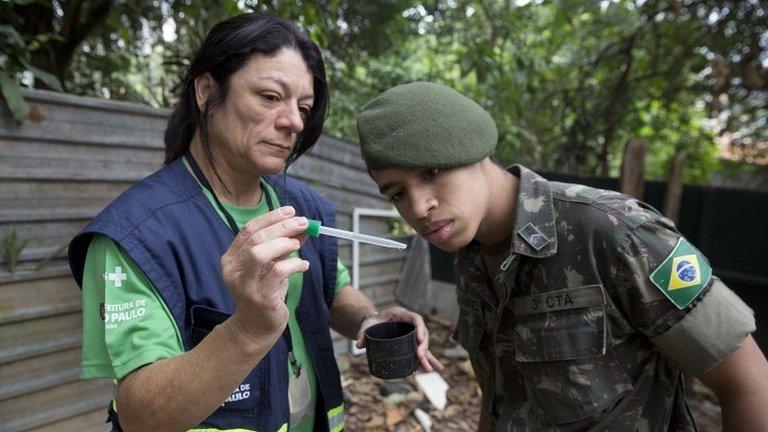
- Published23 January 2016
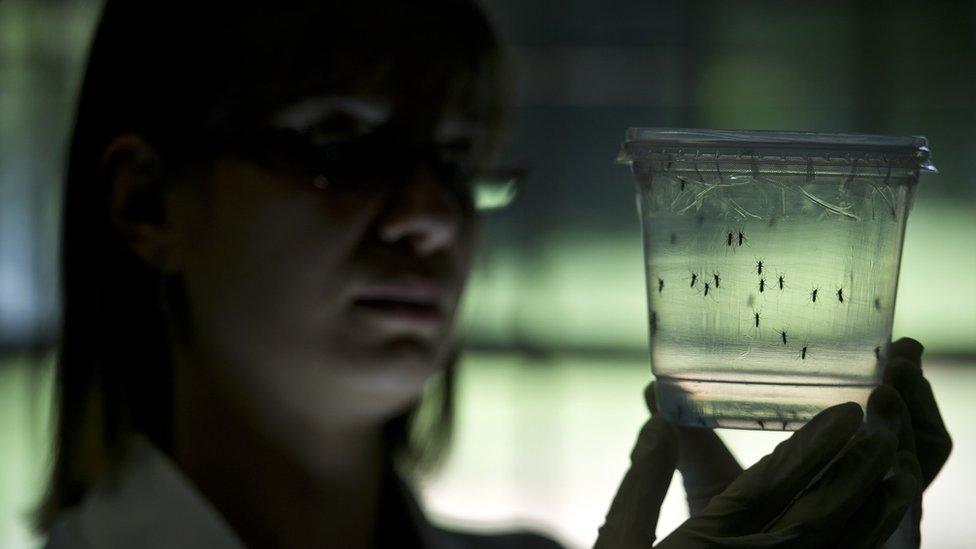
- Published23 January 2016
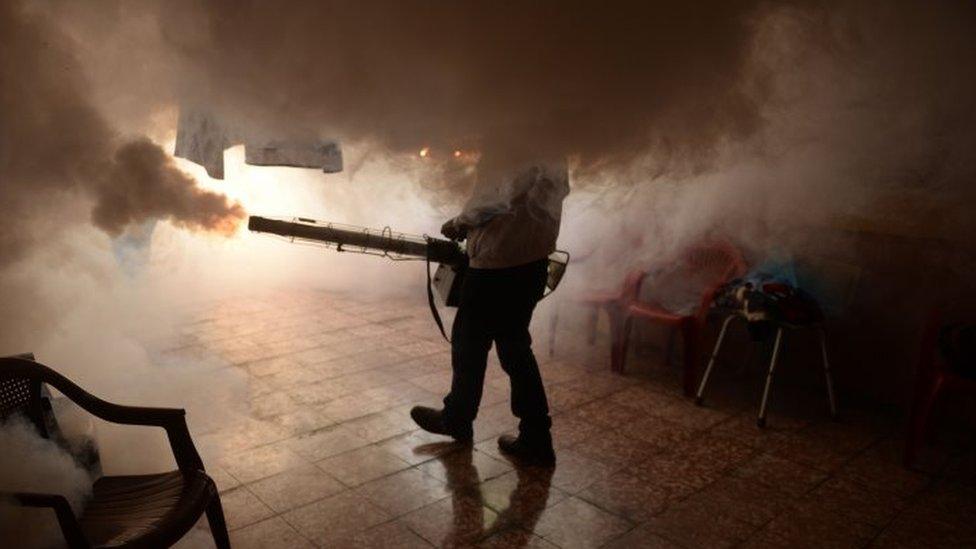
- Published28 January 2016
